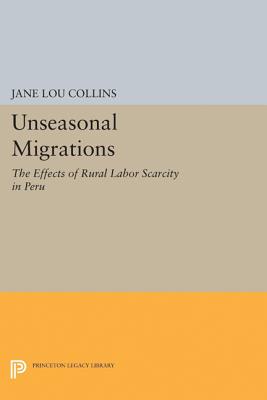Jane Collins explores a phenomenon of growing importance in developing nations--the labor scarcity that emerges as farmers in Latin America and elsewhere are forced by economic necessity to seek seasonal work away from their home communities. Such labor scarcity often results in "unseasonal" ecological damage and the deterioration of social relations. Professor Collins focuses on a particular instance in which migration has created labor scarcity: the seasonal journeys of Aymara-speaking highland peasants to east Andean valleys, where they grow coffee. Contrary to the conventional wisdom that labor is an abundant resource in developing countries, the Aymara’s situation illustrates a problem common throughout the Third World. Although it was presumed in the 1940s and 1950s that the Aymara would permanently colonize the valley region, they have not done so. This book demonstrates that the unfavorable price for which they must sell their coffee forces them to maintain highland food crop production. Their poor position in the coffee market thus blocks their permanent migration and their ability to make more intensive capital or labor investments in coffee growing. The author argues convincingly that the rural labor scarcity produced by their migrations generates ecological decline in the lowlands and intracommunity conflicts and declining networks of production in the highlands. In discussing the Aymara, she confronts a Third World problem of broad theoretical significance.
Originally published in .
The Princeton Legacy Library uses the latest print-on-demand technology to again make available previously out-of-print books from the distinguished backlist of Princeton University Press. These editions preserve the original texts of these important books while presenting them in durable paperback and hardcover editions. The goal of the Princeton Legacy Library is to vastly increase access to the rich scholarly heritage found in the thousands of books published by Princeton University Press since its founding in 1905.












